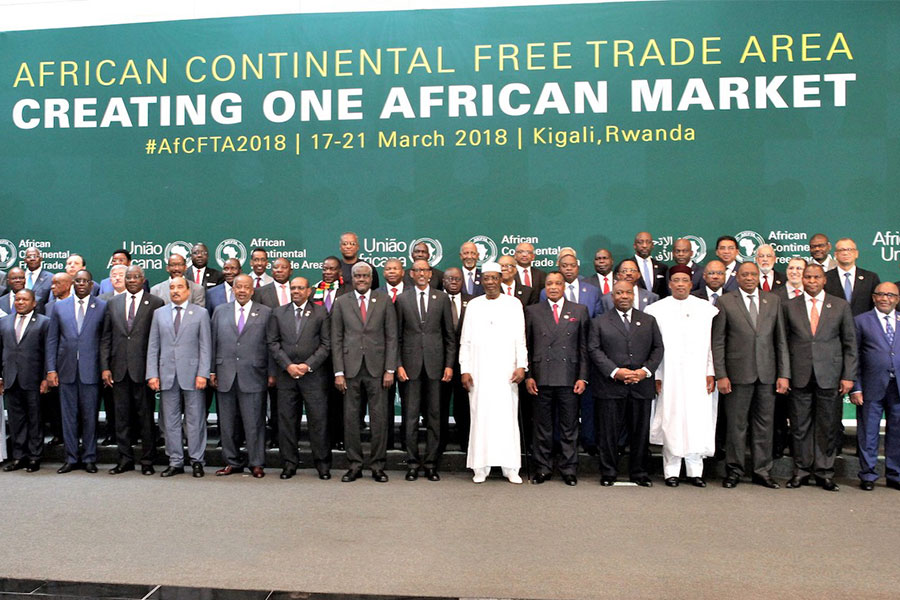
Jun 7 , 2020
By Christian Tesfaye
The hold of history on any society is profound. Ethiopia is no different. Our historical memory has been constructed so deficiently and poorly it lies at the crux of the injustices perpetuated by our political and economic institutions. This is true of any country on earth.
Political differences, in many societies, rarely rest on the general conceptions of freedom and equality. What the various political groups stand divided over is how liberties, opportunities and economic resources should be distributed under the current circumstances. Those circumstances are intimately and hopelessly associated with how people think history has panned out and who it has benefited.
In as far as institutions are built to the benefit of individuals or groups, to either ensure progress or at least maintain a status quo, it is impossible not to be informed by historical circumstances and our assumptions of the past.
The clearest example of this is affirmative action – it is impossible to put this in place if the majority in a society believe that there are no disadvantaged groups.
Ethiopian society only agrees that this is true of women, which is why there are policies that attempt to balance out the difference when it comes to some educational and employment opportunities.
Consider American society. In good times, there was the general agreement that non-whites and women have been historically disadvantaged, and thus affirmative action policies have been employed to support them. On the margins, and increasingly moving to the centre, are groups that do not see it that way. They believe that the United States was in its best shape in the past and that the recent past has not been all that terrible for women or racial minorities. In fact, they would claim, there has been a steady rise in discrimination against whites and men. It is only fortunate for the US that this view has not taken over the political establishment.
What it implies is a difference in historical memory, and it profoundly informs current politics and how institutions are set up.
This is also why the killing of George Floyd, an unarmed black man, by a police officer did not spark protests against policing in particular but has been bound up with race relations. This is why it is not merely a matter of disproportionate use of force by the police but a matter of inherited institutional advantages and systemic injustices. It is why we hear so much about 'Black Lives Matter.'
The George Floyd protests are a fantastic case study of the social dysfunction that occurs whenever there is a lack of consensus on what has transpired throughout history and who has been disadvantaged. There is a reason for taking these protests as a case study, and it has to do with the place the United States holds in the global collective consciousness and the attention that has been given to its nation-building project.
No doubt, the United States is not Ethiopia. Both countries have come to be in varying historical circumstances. But this is also true for almost any other country in the world. No two countries are alike. But no two countries are that dissimilar either. A country may be conservative, liberal, rich, low-income, old, a recent colonial invention and even homogeneous or heterogeneous in its social make-up.
One thing is unavoidable. Every country has social relations by the simple virtue of their being millions and, in two cases, billions of people living in one country and interacting with each other. And where there is interaction, there is a movement of resources and the creation of social constructions, such as culture. There is then a need for a government and finally a mobilisation and allocation of resources. This makes up power relations, which inevitably entails winners and losers. For the simple fact that societies exist, there will be differences in historical memory that carry over into economic institutions. This is unavoidable and the social problems - with variations on who has been disadvantaged and who has benefited - also exists in every other country.
What makes the United States all the more important as a case study is the sheer amount of written accounts about the nation’s founding and its subsequent socioeconomic and political evolution. Much has been documented about how the US came to be as a nation, why it created the institutions it did and the rationale of its founders. It is the closest humanity ever came to founding a country based on a philosophy, the Enlightenment-era ideals in the case of the US.
For these reasons, despite the differences in historical circumstances, the US serves as perhaps not just the best case study on the political and economic implications of social interaction but the most comprehensive one as well.
What is the takeaway for Ethiopia?
It is actually glaring. It is the need for reaching a consensus on history and the injustices that have existed. This does not mean merely an elite bargain in which certain powerful individuals sit around a table, hammer down a political agreement, stay around for photo ops and go their separate ways.
It is a national project and a constant process of societal renewal. No one-off agreement today over socio-political and economic issues will cut it. There can never be an economic and political system that is perfect. Injustice is the one true constant, and there will always be chances for regressing as a society. This is why US President Donald Trump threatens the civil liberties Martin Luther King, Jr. stood for.
The only way systemic injustices can be addressed is by having a constant debate, often over what has transpired in the past. Progress can only be achieved if society is able to imagine, explore and reinvent itself constantly - regardless of how advanced the system may look to our biased eyes.
As William Faulkner said, “The past is never dead. It's not even past.”
PUBLISHED ON
Jun 07,2020 [ VOL
21 , NO
1050]


Radar | Jun 21,2025

Radar | Aug 10,2019

Viewpoints | Aug 28,2021

Radar | Aug 21,2021

Radar | Nov 23,2019

Fortune News | Feb 13,2021

Viewpoints | May 02,2024

Fortune News | May 02,2020

Fortune News | Mar 23,2019

Radar | Sep 19,2020

My Opinion | 131673 Views | Aug 14,2021

My Opinion | 128039 Views | Aug 21,2021

My Opinion | 126001 Views | Sep 10,2021

My Opinion | 123622 Views | Aug 07,2021

Dec 22 , 2024 . By TIZITA SHEWAFERAW
Charged with transforming colossal state-owned enterprises into modern and competitiv...

Aug 18 , 2024 . By AKSAH ITALO
Although predictable Yonas Zerihun's job in the ride-hailing service is not immune to...

Jul 28 , 2024 . By TIZITA SHEWAFERAW
Unhabitual, perhaps too many, Samuel Gebreyohannes, 38, used to occasionally enjoy a couple of beers at breakfast. However, he recently swit...

Jul 13 , 2024 . By AKSAH ITALO
Investors who rely on tractors, trucks, and field vehicles for commuting, transporting commodities, and f...

Jun 28 , 2025
Meseret Damtie, the assertive auditor general, has never been shy about naming names...

Jun 21 , 2025
A well-worn adage says, “Budget is not destiny, but it is direction.” Examining t...

Jun 14 , 2025
Yet again, the Horn of Africa is bracing for trouble. A region already frayed by wars...

Jun 7 , 2025
Few promises shine brighter in Addis Abeba than the pledge of a roof for every family...

Jun 29 , 2025
Addis Abeba's first rains have coincided with a sweeping rise in private school tuition, prompting the city's education...

Jun 29 , 2025 . By BEZAWIT HULUAGER
Central Bank Governor Mamo Mihretu claimed a bold reconfiguration of monetary policy...

Jun 29 , 2025 . By BEZAWIT HULUAGER
The federal government is betting on a sweeping overhaul of the driver licensing regi...

Jun 29 , 2025 . By NAHOM AYELE
Gadaa Bank has listed 1.2 million shares on the Ethiopian Securities Exchange (ESX),...